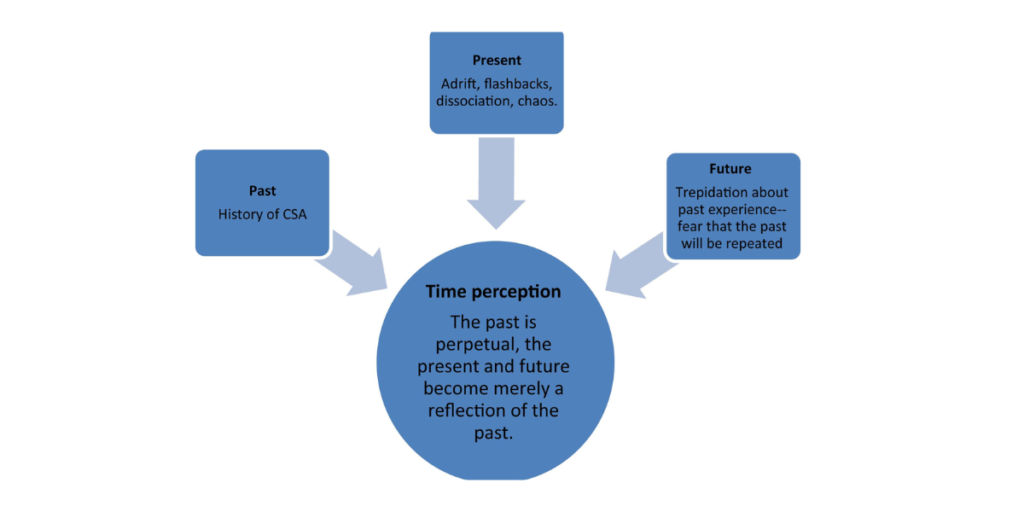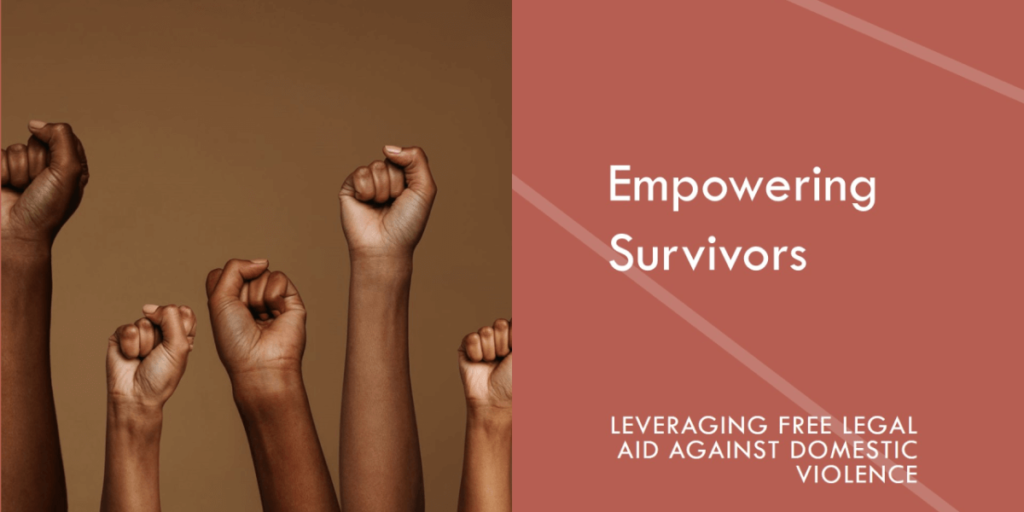Sexual Abuse is a profoundly traumatic experience that can have long-lasting effects on survivors. It can leave deep physical, emotional, and psychological scars impacting their whole life. These impacts can vary on the severity and duration of the abuse. It becomes even more difficult for survivors to open up due to the impact of shame, guilt, fear of not being believed, fear of judgment, and lack of awareness.
It is heart-wrenching to discover how many men, women, and children experience such traumatic events in their lives. Sexual abuse takes place in many forms, events such as child sexual abuse, rape, sexual assault, sexual violence in relationships, sexual exploitation, exposure, and online sexual abuse are just a few to name.
According to a recent survey, every 9 minutes an evidence or claim of child sexual abuse of 34% of children under the age of 12 and 66% of those aged 12-17 are registered. Among women survivors, 33% attempted suicide and approximately 13% of survivors committed suicide. As per recent study, 45% of men and 65% of women survivors who reported having experienced rape met the criteria for Post Traumatic Stress Disorder.
Although there is nothing that can undo such an experience, with proper treatment and support survivors may heal from the physical and mental traumas. Mental health and legal support have become crucial for the recovery and empowerment of sexual abuse survivors. Let’s find out how prioritizing mental health along with legal benefits can be taken advantage of for the healing of the survivors.
Table of Contents
The Devastating Effects of Sexual Abuse on Survivors

Sexual abuse has a significant impact on an individual who experiences it. Along with physical health issues such as sexual dysfunction, and chronic pain, survivors may go through PTSD, severe depression, anxiety, low self-esteem, and behavior changes leading them to substance abuse and self-harm. A sexual abuse aftermath can be very difficult to handle for the survivor and their loved ones. Every survivor responds to traumatic events in their own way.
“Sexual assault or abuse is never a victim’s fault”.
Let’s understand all the risk factors that come along:
Physical Effects
- Injuries and Dysfunctionality– Injuries may include, bruising, bleeding (vaginal or anal), broken bones, and internal injury.
- Diseases and consequences– Diseases such as STDs and pregnancy among women and children can be life-altering.
- Chronic Pain– Severe abuse may lead to internal damage and permanent sexual dysfunctionality or organ dysfunctionality.
Mental Effects
- Psychological Disorder– Mental illnesses such as PTSD, anxiety, and unavoidable thoughts can last for a long time impacting daily life.
- Sleep Disturbance– Nightmares, insomnia, and other sleep disorders may be experienced by a survivor.
- Depression– Depression being one of the severe and common symptoms may also welcome suicidal thoughts, dissociation from society, unexplained crying, and hopelessness. If you or someone you know is having suicidal thoughts, contact the National Suicide Prevention Lifeline at 1.800.273.8255.
Emotional Effects
- Numbness– Trauma from the event may cause survivor to completely numb their feelings and emotional reactions causing them to experience flat affect.
- Trust Issues– A lack of trust builds in the survivor’s mind causing them to doubt even their loved ones. An extreme sense of fear of physical touch or compassionate words may trigger more fear.
- Broken Self-esteem– The survivors may experience low self-esteem with a will to end their lives. It can be challenging in their occupational and educational aspects.
Recognizing Sexual Assault That Most Ignore

Sexual assault is a behavior or sexual contact that occurs without the consent of the victim. Unlike physical abuse which includes bodily injury, sexual assault may include slapping, pinching, choking, kicking, and groping. Let’s bring into discussion the commonly ignored forms and places of sexual assault.
Workplace Sexual Harassment
- Workplace sexual harassment includes exploiting authority to harass and assault subordinates.
- Employees face harassment and verbal abuse from customers or clients that are in direct interaction.
- Verbal harassment includes making sexual jokes and offensive comments.
- Using threats, promises, and manipulation to obtain sexual favors.
- Conditioning job security, job promotions, or salary increments in return of sexual favors.
Rideshare Services (Lyft, Uber, etc.)
- Control on power over passenger due to their control over vehicle and route.
- Enclosed privacy may lead to opportunities for abuse.
- Alcohol or under the influence assault.
- Physical attack or threat of violence during the ride.
You can find more information here on the Uber/Lyft Sexual Assault Case.
Institutional Sexual Assault
- Students, facilities, and staff members experience sexual harassment within academic premises.
- Inappropriate behavior of teacher or suggesting passing qualification with the demand of sexual favors.
- Facilities such as healthcare, military, correctional, and religious institutes often have a record of misconduct or harassment among staff or facility members.
If you or anyone you know is seeking legal assistance or advisory for the workplace, Uber/Lyft, or institutional sexual abuse you can visit Helping Survivors to take a step towards justice.
Importance of Mental Health Support on Sexual Abuse Survivors
Mental health support is crucial in the healing of sexual abuse survivors. Prioritizing mental health can help survivors overcome the experienced trauma faster than other supporting factors. Let’s explore how mental health support can be useful.
Psychotherapy
One of the most crucial factors in treating post-traumatic stress disorder is psychodynamic psychotherapy. In this therapy session, survivors are advised to focus on expressing their buried emotions therefore breaking the numbness pattern. Recurring patterns are identified. Experience is discussed until it becomes a normal topic to talk about and lastly, it builds hope in survivors by exploration methods of wishes, dreams, and fantasies.
Cognitive Behaviour Therapy
CBT is another method of therapy that is recommended to survivors to gain more control over emotional and behavioral patterns due to traumatic events. Relaxation skill is taught such as meditation, mindfulness, and yoga. The trauma narration process is then adapted in the form of speaking, writing, and expressing through art, music, and other hobbies. Child-parent communication is promoted for trust building and enhanced communication.
Overall wellbeing
In overall well-being, healthcare professionals recommend creating meaningful relationships, pursuing personal and professional goals to overcome distress, increasing motivation, and becoming mentally resilient.
The Impact of Legal Support on Sexual Abuse Survivors

Legal support has a multifaceted impact on sexual abuse survivors. Providing access to justice also enhances the safety and protection of the survivors.
Here is a detailed look at the impact of legal support on sexual abuse survivors-
Justice is served
Law validates survivors’ experiences and keeps perpetrators accountable for their actions by which a sense of validation can be obtained. Access to legal resources such as filing a civil lawsuit, and seeking restraining orders ensures law offenders face consequences.
Safety and Protection
Safety and protection are given to the survivor which restraints abusers from approaching the victims. Legal actions can provide immediate protection preventing further abuse or assault.
Compensation and Support
Survivors can seek medical and financial compensation for medical, therapy, and other damages caused by abuse. Legal support often connects survivors with the Victim compensation program that provides additional financial assistance.
Awareness and Prevention
Public awareness about sexual abuse can lead to increased advocacy and support for survivors. Legal cases can also influence policy changes in favor of the victim’s safety and compensation.
Real-Life Stories of Legal Intervention: How It Changed Lives
- The Case of Larry Nassar
Larry Nassar, a former USA Gymnastics doctor and an American serial child rapist was convicted of sexually abusing hundreds of young female athletes over decades. The abuse was perpetrated under the guise of medical treatment.
Legal Intervention: Survivors, led by athletes like Aly Raisman, Simone Biles, and McKayla Maroney, courageously came forward to share their experiences. Nassar was ultimately sentenced to 40 to 175 years in prison. On July 9, 2023, Larry was stabbed 10 times in prison.
- The R. Kelly Case
Background: R. Kelly, a famous R&B singer, faced numerous allegations of sexual abuse and misconduct spanning over 20 years. He was prosecuted on child pornography charges. His victims included children and minors.
Legal Intervention: Following the airing of the documentary series “Surviving R. Kelly,” which detailed his abuse, legal action was taken. Kelly was charged with multiple federal and state crimes, including racketeering and sex trafficking. He was convicted and sentenced to 30 years in prison.
- Harvey Weinstein
Background: Harvey Weinstein, a powerful Hollywood producer, was accused by more than 80 women of sexual harassment, assault, and rape over several decades.
Legal Intervention: Following investigative journalism and the #MeToo movement, Weinstein was charged with multiple counts of sexual misconduct. He was convicted and sentenced to 16 years in prison.
Conclusion
Sexual abuse and assault can severely impact an individual leaving lasting physical and emotional scars. Raising awareness is crucial for prevention, helping children, women, and teenagers recognize risk factors and protect themselves. Survivors of rape and assault need compassionate support to heal and rebuild their lives.
Promoting mental health support empowers survivors to process their trauma and regain control, while legal support ensures justice and protection. By fostering a compassionate community and advocating for comprehensive mental health and legal resources, we can help survivors on their journey to recovery and work toward a society where sexual abuse is eradicated.
